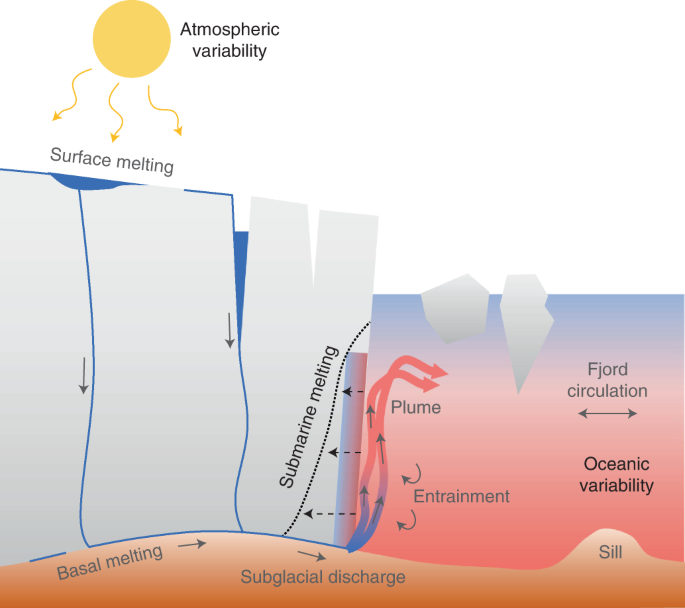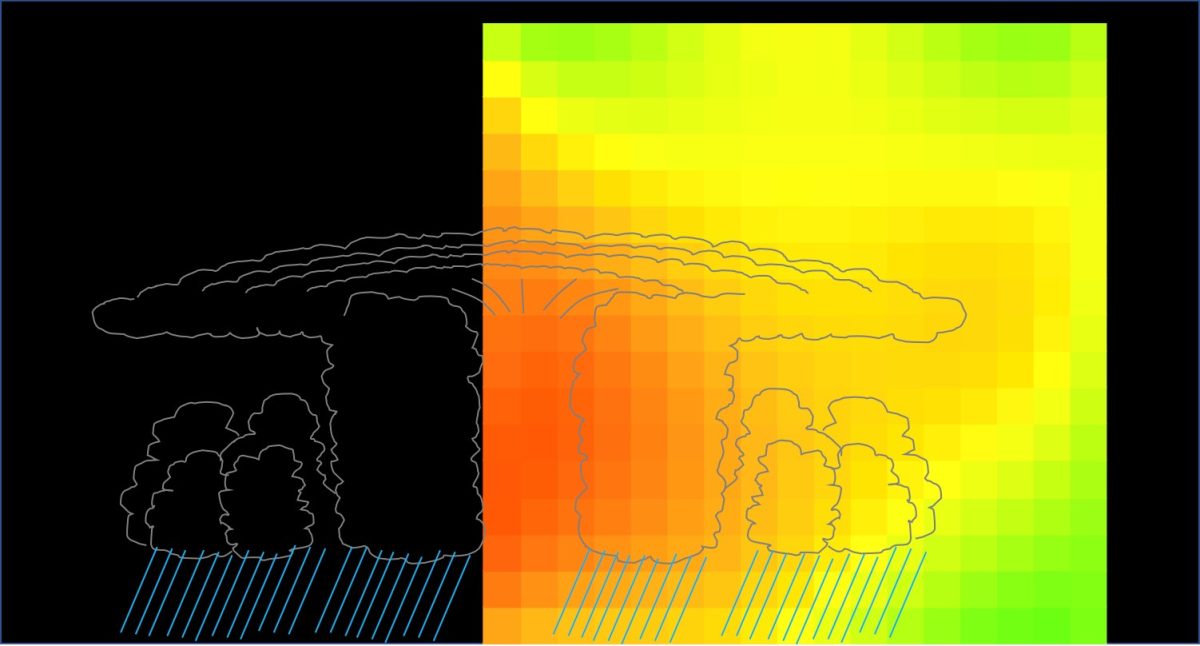グリーンランド氷床は、これまで考えられていたよりも気候変動に対して脆弱である可能性があることが、新たな研究により示唆された。 The Greenland ice sheet may be more vulnerable to climate change than previously thought, new research suggests.
2022-10-12 エディンバラ大学
グリーンランドでは、暖かい空気の温度が氷床の表面を溶かし、雪解け水が発生すると、その量が増幅される。雪解け水が海に流れ込むと乱流が発生し、その結果、海に沈んだ氷床の端がより多くの熱で溶ける、いわゆる海底融解が起こります。
エジンバラ大学とカリフォルニア大学サンディエゴ校の研究者たちは、65万平方マイル以上を覆うグリーンランド氷床の海底融解を、1979年から2018年までの40年間にわたって評価した。
観測データとコンピューターモデリングを用いて、それぞれが海底融解に与える影響を分析した。
グリーンランドの南部と中西部では海水温が海底融解を支配する主な要因であるのに対し、島の北西部では大気の温暖化が同様にダメージを与えていることがわかった。
この結果から、もし1979年以降に大気が温暖化していなければ、海底融解によって引き起こされるグリーンランドの氷河の後退は、北西部では半分に、グリーンランド全体では3分の1に減少していた可能性があることがわかった。
<関連情報>
- https://www.ed.ac.uk/news/2022/vast-ice-sheet-facing-climate-fight-on-two-fronts
- https://www.nature.com/articles/s41561-022-01035-9
大気温暖化で増幅するグリーンランドの氷河の海底融解 Submarine melting of glaciers in Greenland amplified by atmospheric warming
D. A. Slater & F. Straneo
Nature Geoscience Published:03 October 2022
DOI:https://doi.org/10.1038/s41561-022-01035-9

Abstract
Rapid ice loss from the Greenland ice sheet since 1992 is due in equal parts to increased surface melting and accelerated ice flow. The latter is conventionally attributed to ocean warming, which has enhanced submarine melting of the fronts of Greenland’s marine-terminating glaciers. Yet, through the release of ice sheet surface meltwater into the ocean, which excites near-glacier ocean circulation and in turn the transfer of heat from ocean to ice, a warming atmosphere can increase submarine melting even in the absence of ocean warming. The relative importance of atmospheric and oceanic warming in driving increased submarine melting has, however, not been quantified. Here, we reconstruct the rate of submarine melting at Greenland’s marine-terminating glaciers from 1979 to 2018 and estimate the resulting dynamic mass loss. We show that in south Greenland, variability in submarine melting was indeed governed by the ocean, but, in contrast, the atmosphere dominated in the northwest. At the ice sheet scale, the atmosphere plays a first-order role in controlling submarine melting and the subsequent dynamic mass loss. Our results challenge the attribution of dynamic mass loss to ocean warming alone and show that a warming atmosphere has amplified the impact of the ocean on the Greenland ice sheet.



